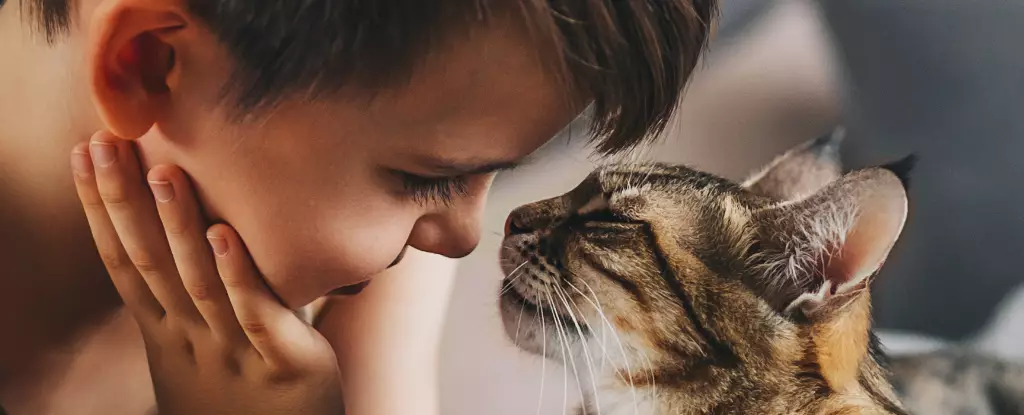Cats have been companions to humans for thousands of years, transcending mere domestication to become integral parts of our lives and households. While the amusing antics and soothing purrs of our feline friends can provide significant comfort, there is a growing body of research that examines the multifaceted effects of living with cats on our overall well-being. This article delves into both the positive and negative implications of cat ownership, offering a comprehensive view of what it truly means to have a cat as a companion.
In stark contrast to the notion that pets are mere accessories to our lives, recent studies indicate that many cat owners perceive their pets as beloved family members. Research with Dutch cat owners revealed that approximately half considered their cats to be family, while a significant number claimed their felines held roles akin to that of children or best friends. This profound connection can yield emotional benefits, such as reduced feelings of loneliness and increased emotional support.
Furthermore, cats exhibit remarkable social skills, often gravitating toward human interactions that mirror companionship traits. Studies suggest that cats demonstrate preference for human interactions over traditional play items or food, indicating an ability to recognize emotional cues from their owners. They have even developed specific vocalizations aimed at eliciting nurturing responses from humans. This evolution points to a unique bond, enhancing our understanding of the emotional landscapes we share with these animals.
The implications of this bond extend into the realm of health and well-being. Numerous studies link pet ownership, particularly that of cats, to lower levels of social isolation. The act of caring for a cat can instill a sense of purpose and joy, particularly for those facing emotional challenges. Individuals who consider their relationship with their pets to be co-dependent or akin to friendship demonstrate heightened emotional connections, which in turn can mitigate symptoms of depression and anxiety.
Moreover, a compelling body of research indicates that cat ownership is correlated with a lower risk of cardiovascular diseases such as stroke and heart disease. While these observations suggest a protective health benefit, it’s essential to recognize that correlation does not imply causation. Despite the promising prospects, challenges arise when attempting to draw definitive conclusions about the direct health impacts of cat ownership.
While the positives are appealing, living with a cat is not without complications. The connection between pets and their owners can sometimes blur the lines of healthy attachment. For example, some surveys conducted with veterans revealed that heightened attachment to pets correlated with poorer mental health outcomes. The reliance on feline companionship may stem from adverse psychological states, raising questions about the balance of these relationships.
Cats can also impose practical challenges on their owners. The responsibility of caring for a sick pet can invoke significant emotional burdens. In particular, caregivers of cats with chronic conditions, like epilepsy, reported experiencing a clinical level of burden, impacting their daily functioning and mental health.
Beyond the psychological intricacies, cat ownership carries inherent health risks. Cats are primary hosts for various zoonotic diseases, including toxoplasmosis, which can be particularly threatening to pregnant women and those with weakened immune systems. While domestic cats may have a lower incidence compared to their feral counterparts, the risk remains significant. Preventative measures, such as daily litter cleaning, become crucial in mitigating these risks.
Additionally, cat allergies are increasingly common and can affect an individual’s ability to coexist peacefully with their pet. Cat saliva and dander are primary allergens that can trigger reactions, especially among sensitive individuals. Fortunately, effective strategies such as regular cleaning and establishing allergen-free zones within the home can help manage these concerns.
Living with a cat encompasses a complex interplay between affection and responsibility. The emotional and physical benefits of pet ownership are balanced against potential health risks and emotional challenges. For many, the companionship of a cat provides a profound sense of comfort and purpose, enriching their lives in multifaceted ways. Ultimately, understanding and navigating this dual nature can lead to a more harmonious relationship between humans and their feline companions, highlighting the importance of fostering healthy connections while remaining vigilant about potential risks.

